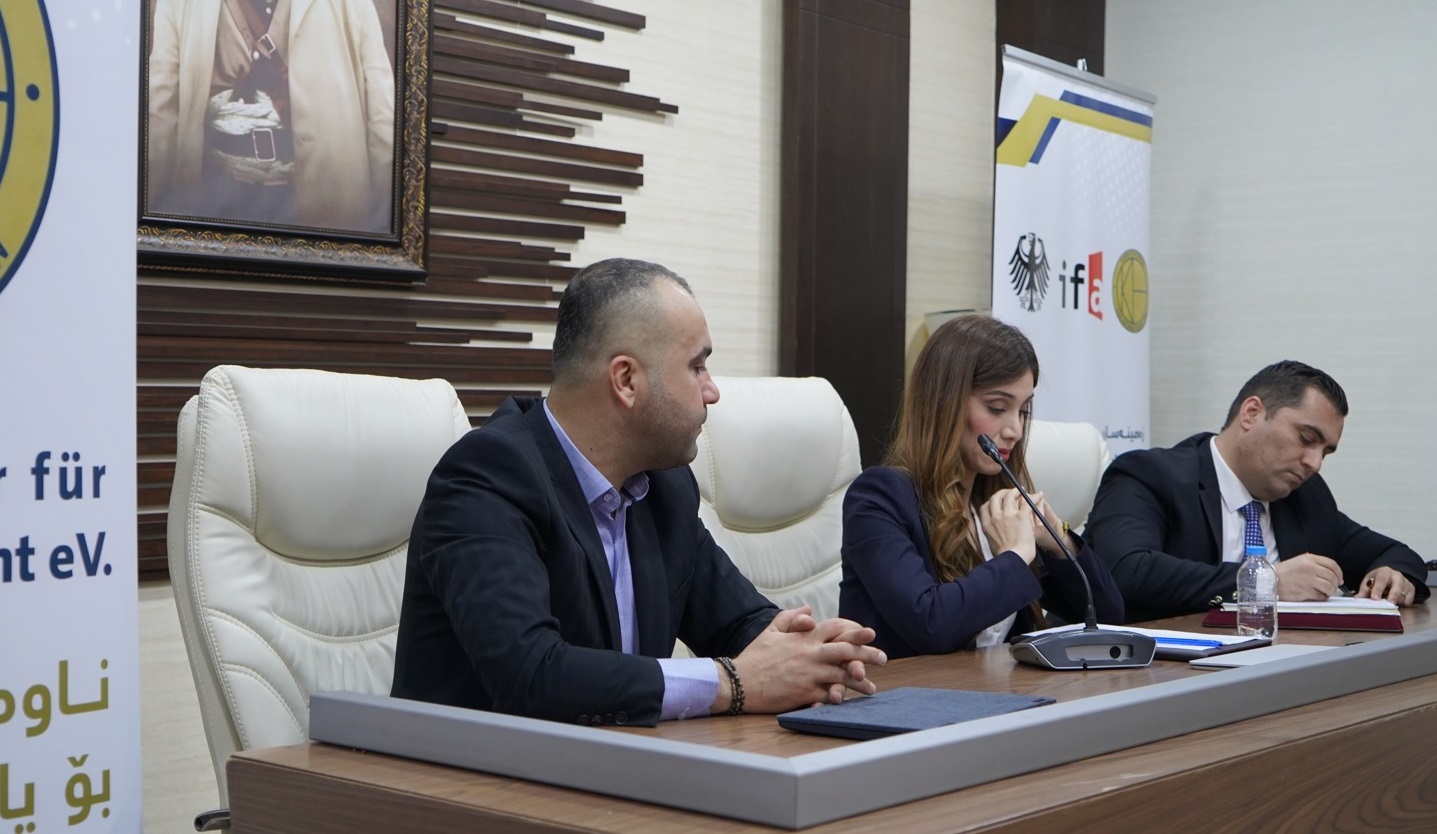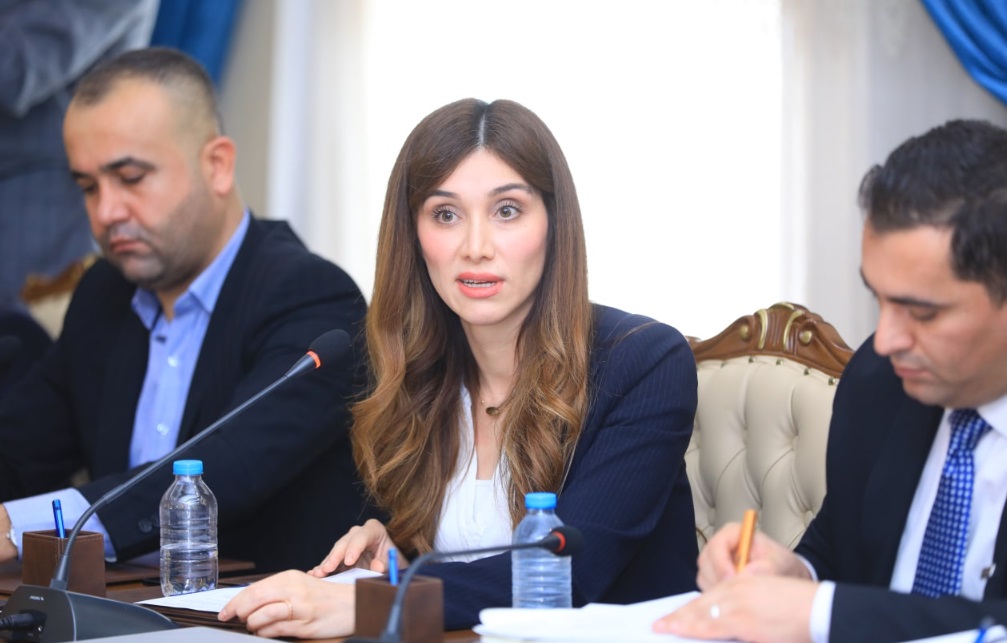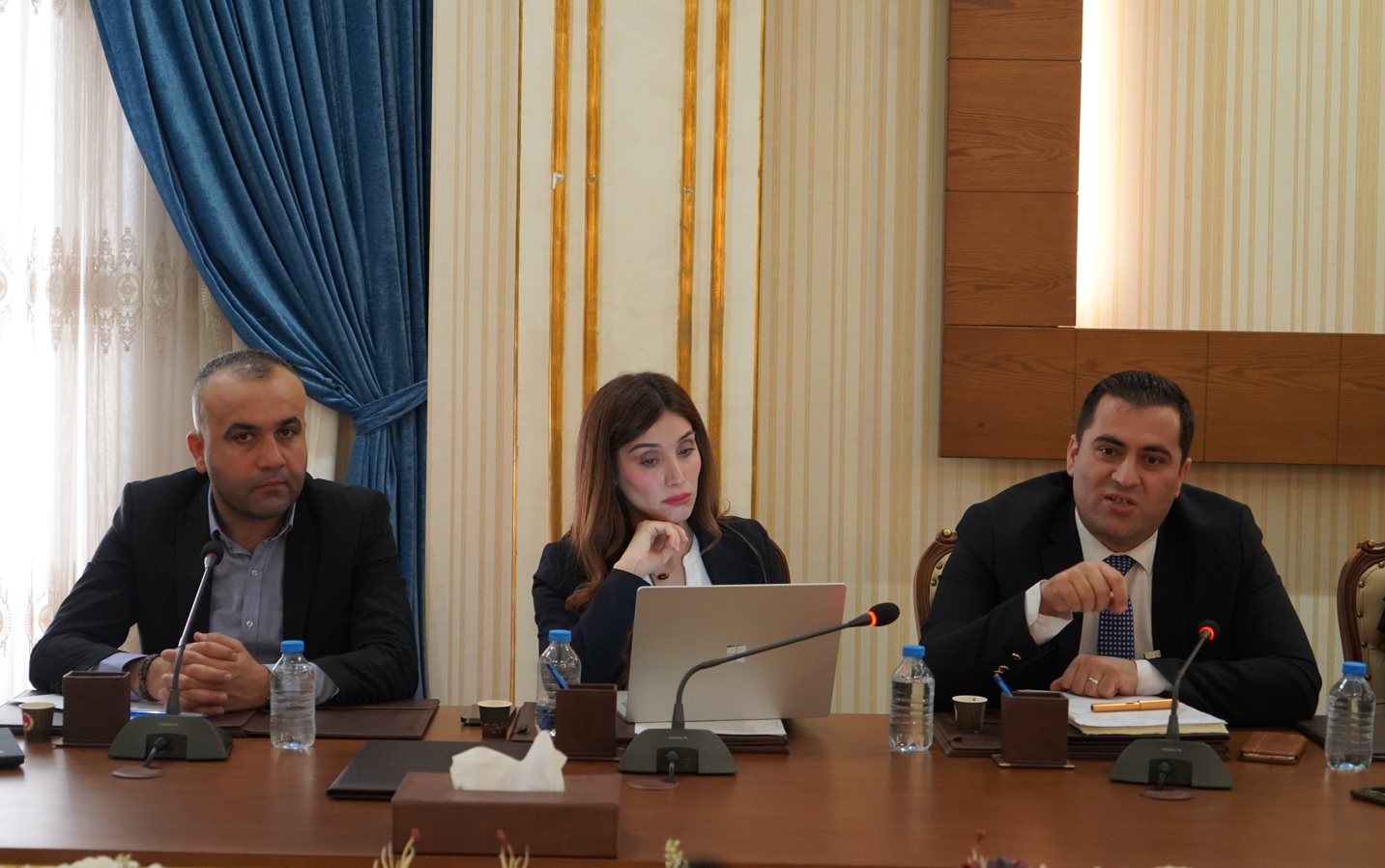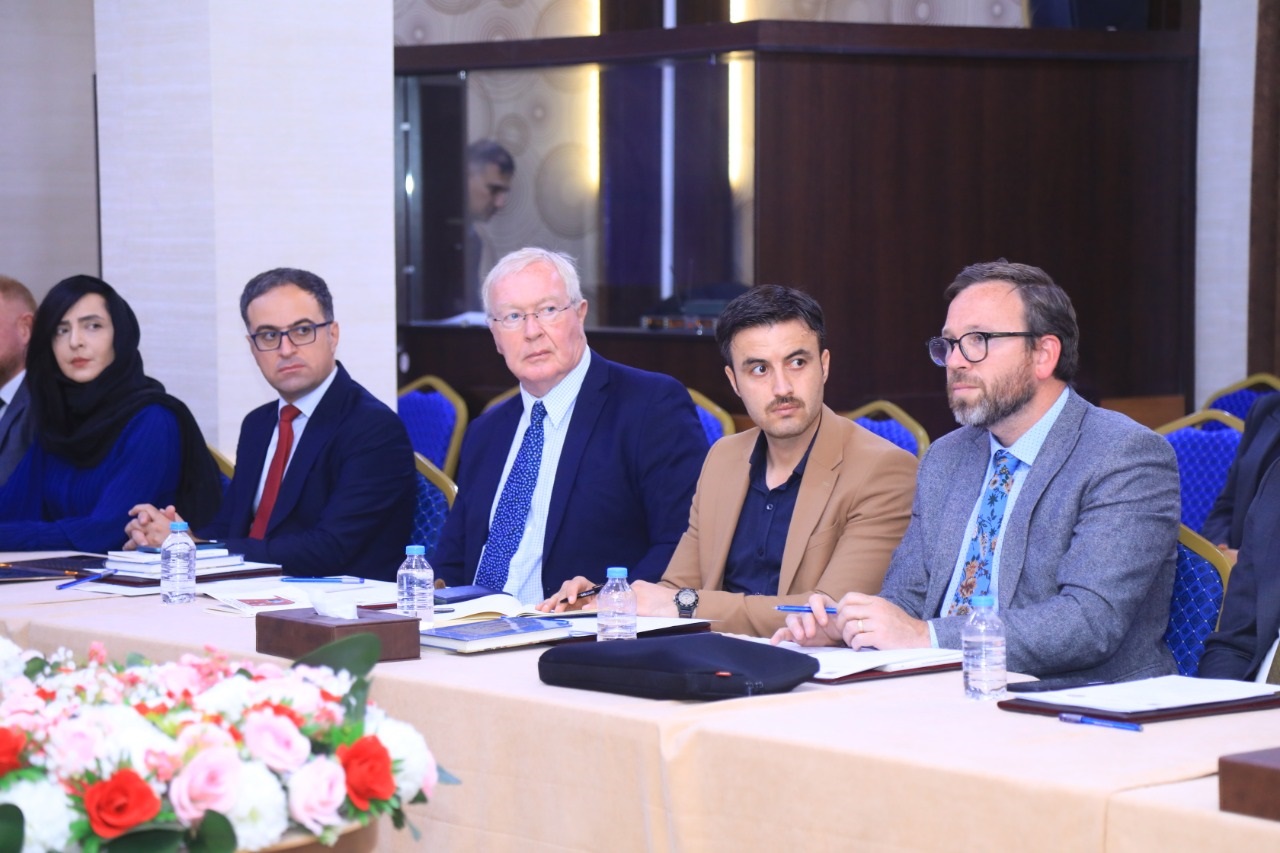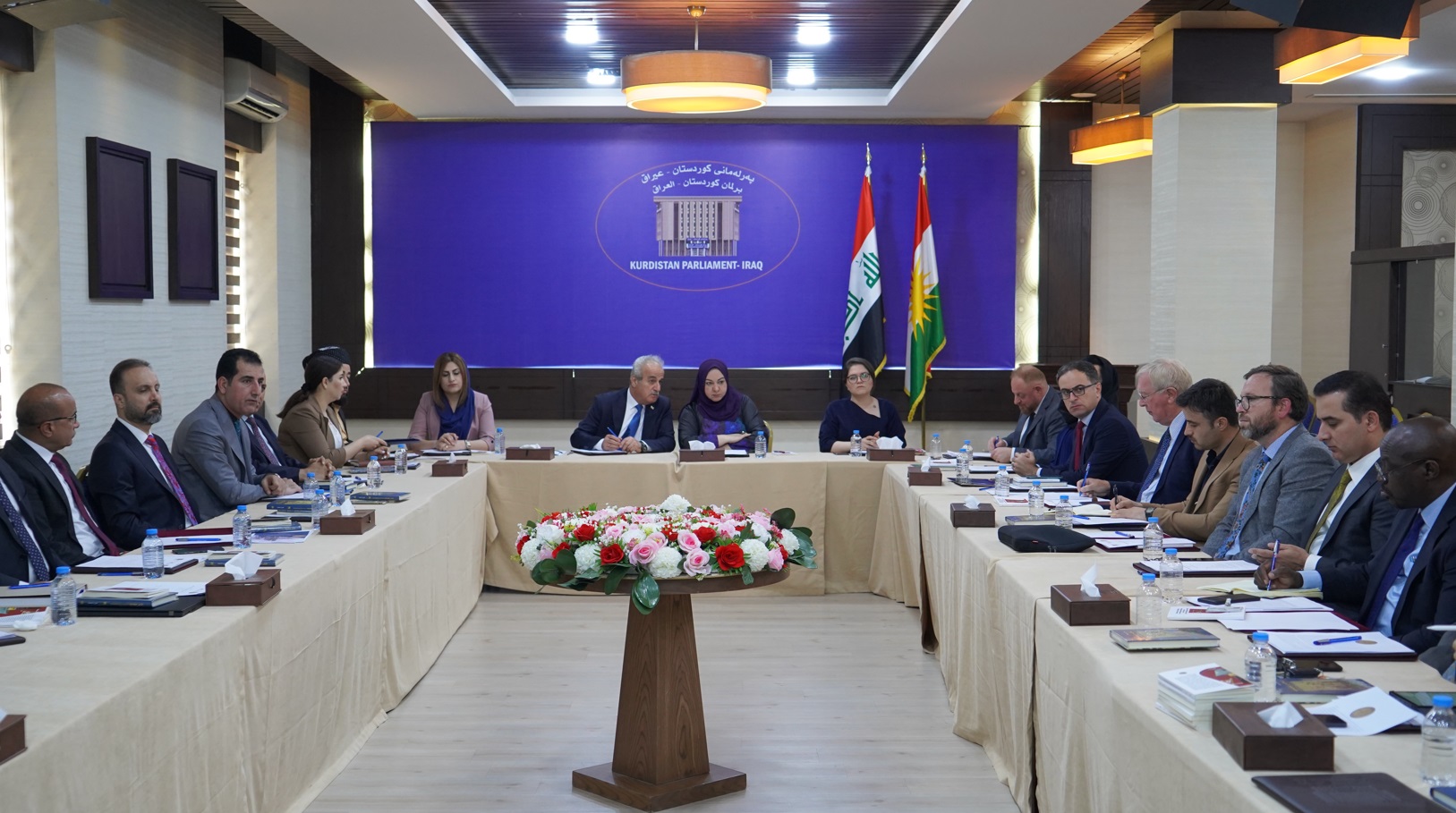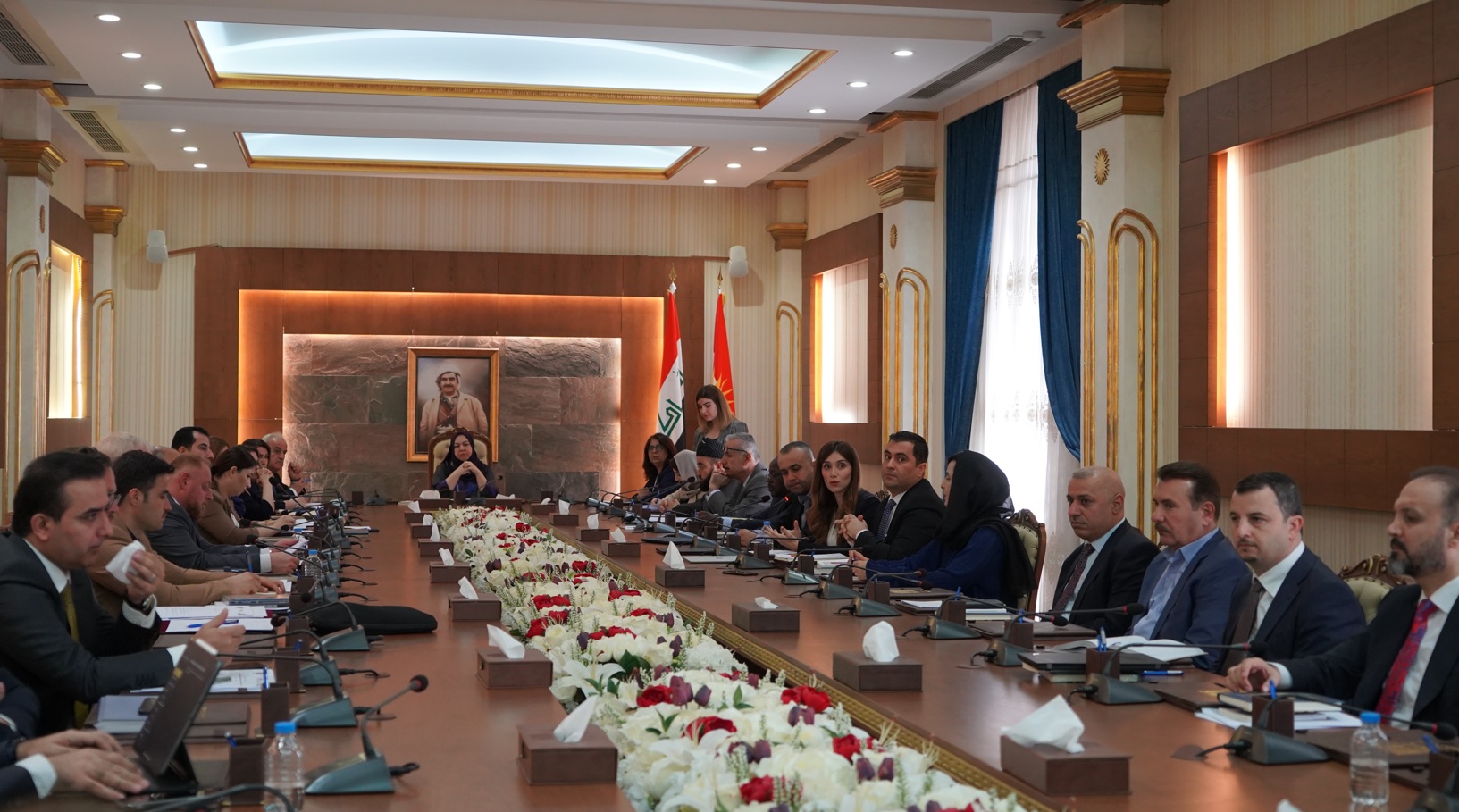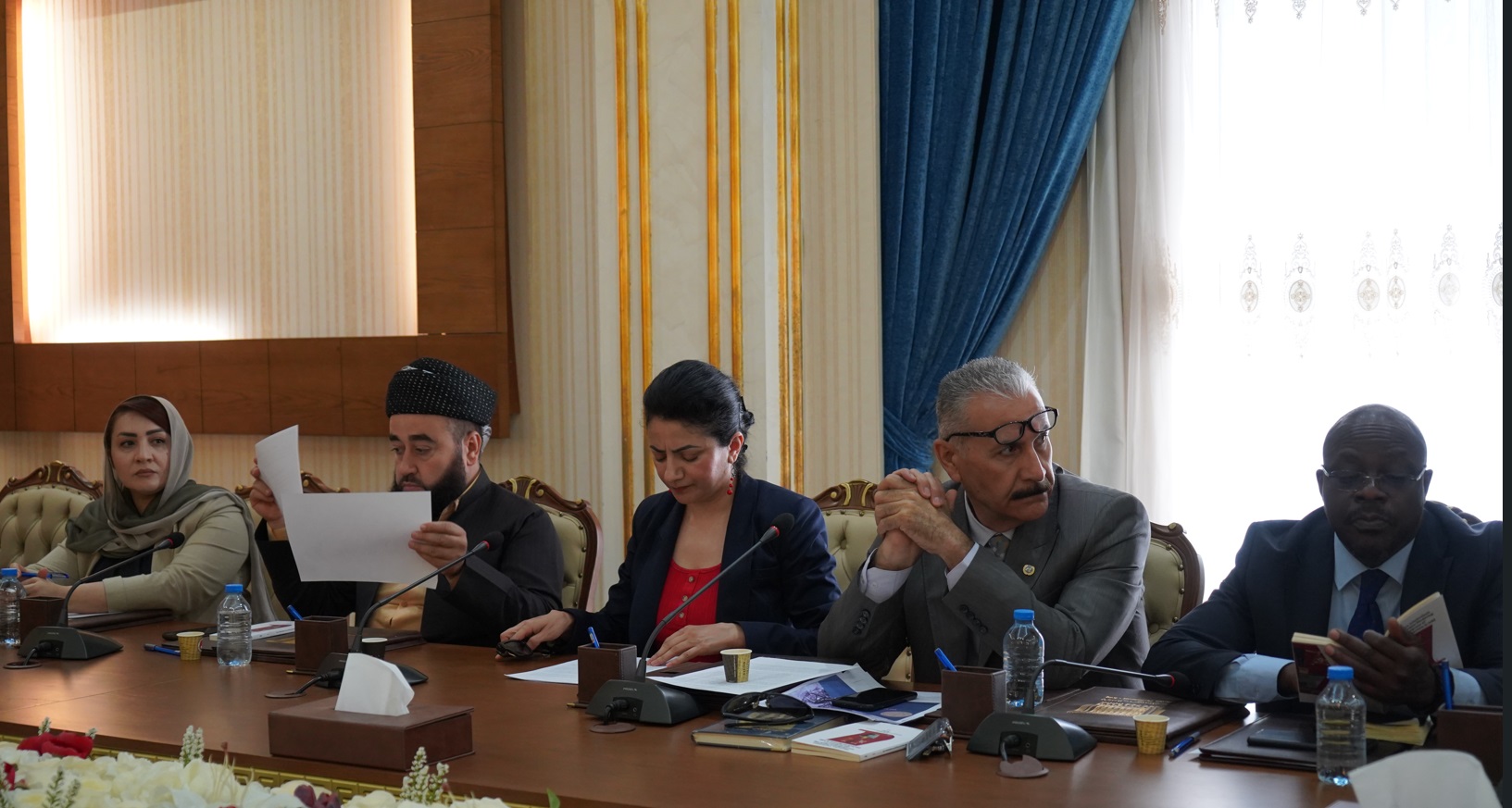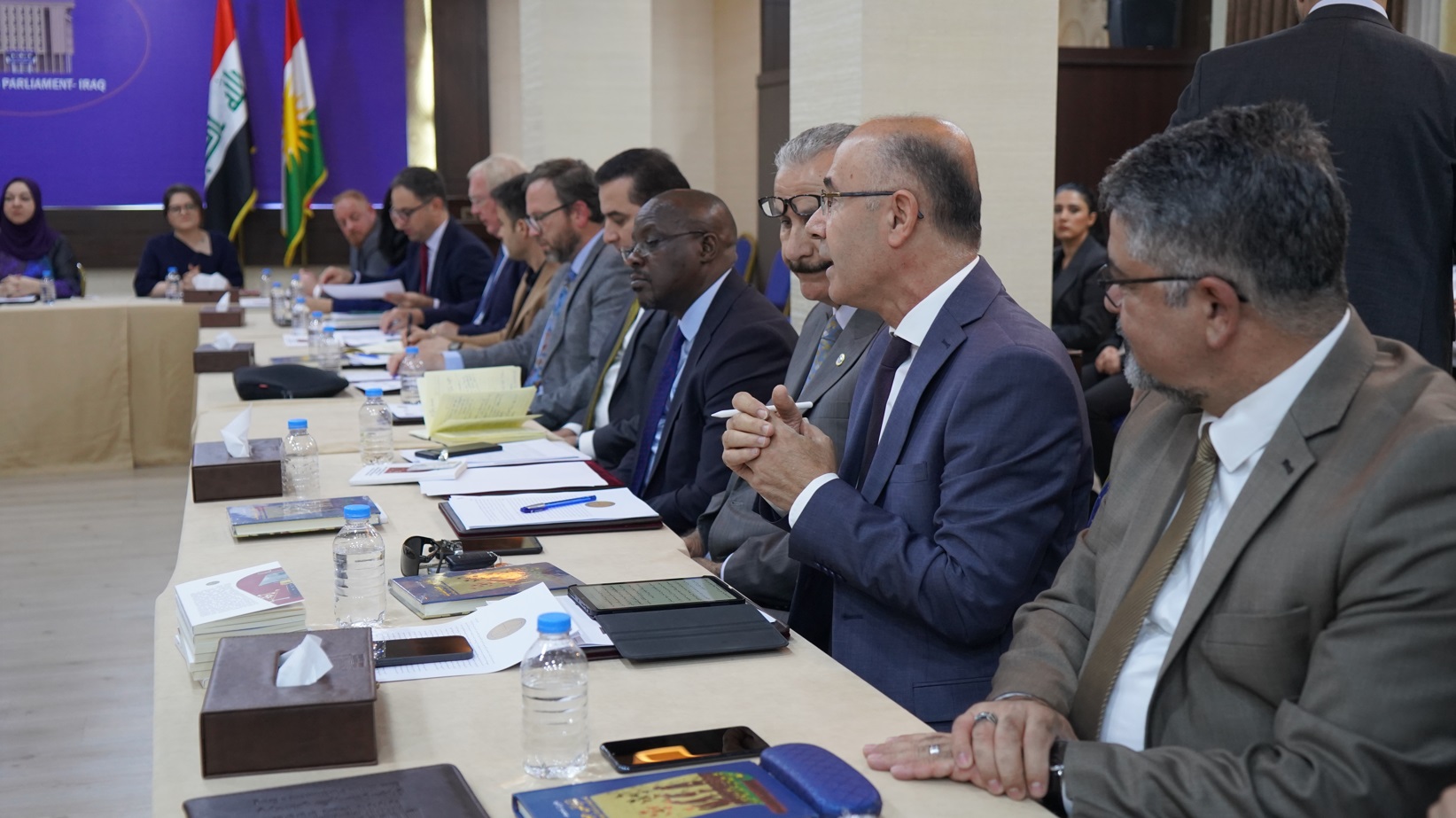Kurdistan Center for
International Law (KCIL) in cooperation with the German Federal Foreign
Office's fund via ifa (Institut für Auslandsbeziehungen) on 26th July 2022 held
a roundtable discussion with the representatives of four Kurdistan
Parliamentary Committees (legal, human rights, martyrs, and social affairs), as
well as, the Speaker of Kurdistan Parliament, legal advisors, representative of
German consulate in Erbil and representatives of international organizations such as; Axiom International and UNAMI were attended in the discussion.
At the beginning, the Executive Director
of the KCIL thanked the Speaker of the Parliament and the Director of the Research
Unit at the Parliament for their supportive cooperation, the aim and objectives of the panel discussion was presented and the general goal of the project which is criminalizing core international crimes in KRI was thoroughly explained.
The Speaker of the Kurdistan
Parliament, Dr. Rewaz Faiq, in her speech said "If the issue of
domestication of international criminal law for many nations of the world is an
academic issue and related to human rights, then for our people is a matter of
existence and life, there are countless violations of international law against
our people. For this purpose, we in the Kurdistan Parliament support the open
discussions in this meeting”. she hoped that the work of this dialogue would
reach good results and answer the legal questions that arise regarding the
internalization of international human rights norms. she asked the participants
to prepare a summary of the important points in this open discussion, so that
the Kurdistan Parliament can use it to draft the bill in coordination with the
Kurdistan Regional Government and the KCIL. Lastly she asked the KCIL to more support the Kurdistan Parliament, generally for drafting bills according to the international standards and especially the ongoing debate on the bill of Anti-Discrimination law in KRI.
Then, the two researchers, Dr. Mohammed Rasheed and Dr. Sheeraz Ibrahim presented the outline of the research and illustrated the possible findings and recommendations for the possibility of domesticating international criminal law in KRI. The participants discussed the challenges and solutions and provided
recommendations for the further actions for the initiation.
